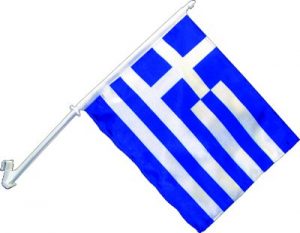In Asia Minor, also known as Anatolia — there were the Pontian Greeks who lived along the...
Asia Minor
The International Association of Genocide Scholars (IAGS) officially recognized the Ottoman Greek Genocide as genocide in 2007,...
The narrative of an "enlightened" and generally democratic Turkey, a country that is currently in the process...
In recent years, some strong research has begun to emerge on the genocides against Armenians and Assyrians....
See who supports ISIL/ISIS/DAESH [...]
The historian Stefan Ihrig's new book reveals the fascination that Kemal Ataturk, the founder of modern Turkey,...
Last week, the Turkish Armed Forces entered Afrin in Syria’s Aleppo. According to the Syria-based Kurdish Hawar...
Last month, Turkish journalist Uzay Bulut wrote a revealing article, “Turkey Uncensored: A History of Censorship and...
One key barometer of sentiments toward the United States among Erdogan supporters, and no doubt many members...
Mr. Shirinian emphasized that the new book Genocide in the Ottoman Empire is the latest tangible effort...














